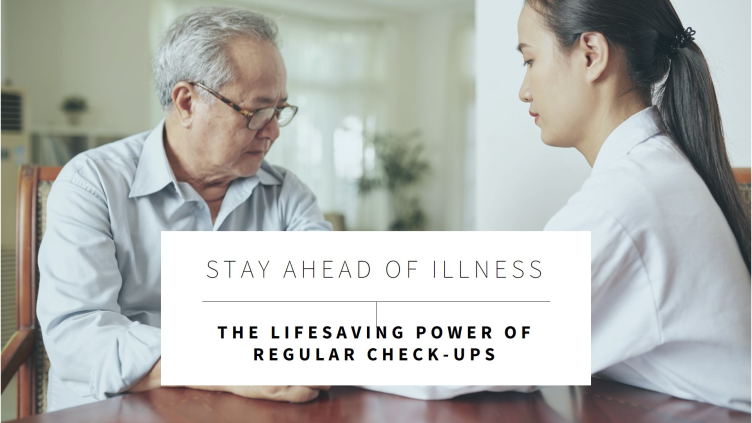Stay Ahead of Illness: The Lifesaving Power of Regular Check-Ups
In the hustle of daily life, when day-to-day struggles take center stage, taking care of your health often slips through the cracks. But regular medical check-ups are not just a good idea ,they’re essential for staying healthy, catching problems early, and living your best life. Let’s break down why they’re so important.
1. Spot Problems Early Before They Get Serious
Some illnesses, like diabetes, high blood pressure, or even cancer, don’t always come with clear symptoms at first. Regular check-ups help catch these conditions early, giving you more options for treatment and a much better chance of recovery. Think of it as solving a small problem before it becomes a big one
2. Prevention Is Easier (and Cheaper!) Than Cure
There’s a reason people say, “Prevention is better than cure.” Health check-ups can help identify potential risks early. For instance, a simple blood sugar test can help you avoid serious complications from diabetes, a condition that’s becoming increasingly common. A little time and effort now can save you a lot of stress now and money later.
3. Keep Chronic Conditions Under Control
If you already have a condition like asthma, high blood pressure, or arthritis, regular visits to your doctor can make managing it much easier. Your doctor can adjust medications, offer new advice, or suggest lifestyle changes to keep you feeling your best.
4. Save Money by Staying Ahead of Health Issues
Skipping check-ups might seem like a way to save money, but untreated health problems often lead to bigger, more expensive treatments down the road. Catching an issue early means fewer hospital visits and lower costs in the long run.
5. Don’t Forget About Mental Health
Mental health often goes unnoticed. Regular visits to your doctor give you the chance to talk about stress, anxiety, or depression. If needed, your doctor can guide you toward help or recommend simple changes to improve your mental well-being.
6. Build a Strong Bond with Your Doctor
Frequent check-ups help you develop a good relationship with your doctor. This makes it easier to talk openly about your health concerns, ensuring you get the best care possible. In semi-rural areas, where specialists may be harder to access, this relationship can make a big difference.
What Happens During a Health Check-Up?
Don’t worry if you’ve never been to a routine check-up before, here’s what to expect:
•Basic tests like checking your blood pressure, sugar levels, and cholesterol.
•Physical exams to look for any unusual signs.
•Advice on your diet, exercise, and lifestyle.
•Vaccinations or booster shots if needed.
Depending on your age or health history, your doctor might also recommend additional tests, like mammograms or bone density scans.
How to Overcome Barriers to Check-Ups
•Use local health camps or mobile clinics when available.
•Plan ahead for check-ups.
•Take advantage of government health programs offering free or low-cost screenings.
•Talk to local health workers who can guide you on affordable healthcare options.
A Small Step for a Healthier Tomorrow
Taking the time for regular check-ups is one of the easiest ways to ensure a long and healthy life. Whether it’s a quick visit to check your blood pressure or a full health screening, these small steps can make a big difference. So, don’t wait for symptoms, make your health a priority today.

